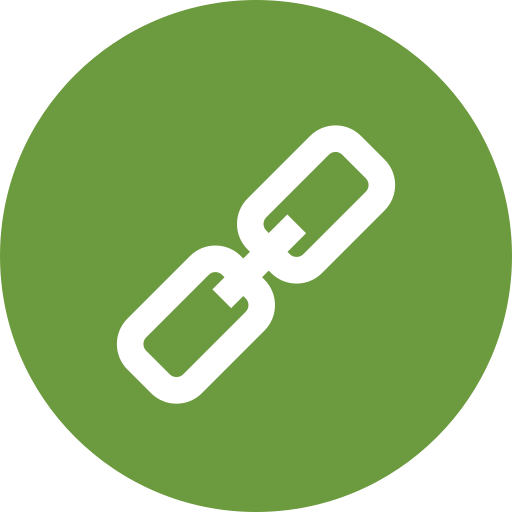| Product name | Per Pill | Savings | Per Pack | Order |
|---|---|---|---|---|
| 30 pills | $0.94 | $28.26 | ADD TO CART | |
| 60 pills | $0.79 | $9.25 | $56.52 $47.27 | ADD TO CART |
| 90 pills | $0.74 | $18.50 | $84.78 $66.28 | ADD TO CART |
| 120 pills | $0.71 | $27.75 | $113.04 $85.29 | ADD TO CART |
| 180 pills | $0.69 | $46.24 | $169.56 $123.32 | ADD TO CART |
| 270 pills | $0.67 | $73.99 | $254.34 $180.35 | ADD TO CART |
| 360 pills | $0.66 | $101.74 | $339.12 $237.38 | ADD TO CART |
| Product name | Per Pill | Savings | Per Pack | Order |
|---|---|---|---|---|
| 30 pills | $0.91 | $27.18 | ADD TO CART | |
| 60 pills | $0.76 | $8.60 | $54.36 $45.76 | ADD TO CART |
| 90 pills | $0.71 | $17.20 | $81.54 $64.34 | ADD TO CART |
| 120 pills | $0.69 | $25.80 | $108.72 $82.92 | ADD TO CART |
| 180 pills | $0.67 | $42.99 | $163.08 $120.09 | ADD TO CART |
| 270 pills | $0.65 | $68.79 | $244.62 $175.83 | ADD TO CART |
| 360 pills | $0.64 | $94.58 | $326.16 $231.58 | ADD TO CART |
| Product name | Per Pill | Savings | Per Pack | Order |
|---|---|---|---|---|
| 60 pills | $0.53 | $31.79 | ADD TO CART | |
| 90 pills | $0.48 | $4.58 | $47.68 $43.10 | ADD TO CART |
| 120 pills | $0.45 | $9.15 | $63.57 $54.42 | ADD TO CART |
| 180 pills | $0.43 | $18.31 | $95.36 $77.05 | ADD TO CART |
| 270 pills | $0.41 | $32.04 | $143.04 $111.00 | ADD TO CART |
| 360 pills | $0.40 | $45.77 | $190.71 $144.94 | ADD TO CART |
Imipramine, a tricyclic antidepressant, has been a cornerstone in the treatment of depression, anxiety, and other mental health conditions for decades. With various dosages available, including 25 mg, 50 mg, and 75 mg, it's essential to understand the intricacies of this medication to ensure safe and effective use. In this article, we'll delve into the world of Imipramine, exploring its uses, dosages, and ordering options, as well as providing valuable insights into its safety and potential interactions.
What is Imipramine?
Imipramine, also known by its brand name Tofranil, is a tricyclic antidepressant (TCA) that works by increasing the levels of certain neurotransmitters in the brain, such as serotonin and norepinephrine. This helps to improve mood, reduce anxiety, and enhance overall mental well-being. Imipramine is commonly prescribed for:
- Depression
- Anxiety disorders
- Chronic pain management
- Bedwetting (nocturnal enuresis) in children
Dosages and Ordering Options
Imipramine is available in various dosages, including 25 mg, 50 mg, and 75 mg. The dosage and frequency of administration will depend on the individual's condition, age, and response to treatment. Here are some ordering options:
| Dosage | Ordering Options |
|---|---|
| 25 mg | Buy Imipramine 25 mg with Amex, Order Imipramine 25 mg with Visa, Buy cheap Imipramine 25 mg without a prescription |
| 50 mg | Buy 50 mg Imipramine OTC, Order Imipramine 50 mg online, Buy 50 mg Imipramine Mastercard |
| 75 mg | Buy Imipramine 75 mg with Amex, Order Imipramine 75 mg online, Buy cheap Imipramine 75 mg with free shipping |
Safe and Trusted Ordering Options
When ordering Imipramine online, it's crucial to ensure that you're purchasing from a reputable and trusted source. Here are some tips to help you make a safe and informed decision:
- Check for authenticity: Verify that the online pharmacy is licensed and authorized to sell Imipramine.
- Read reviews: Look for reviews from other customers to ensure that the pharmacy has a good reputation.
- Check for SSL encryption: Ensure that the website has a secure connection (https) to protect your personal and financial information.
- Consult with a doctor: Before ordering Imipramine online, consult with a doctor to ensure that it's the right medication for your condition.
Some trusted ordering options include:
- Buy Imipramine with a Mastercard: A secure and convenient way to purchase Imipramine online.
- Order Imipramine 25 mg with Visa: A reliable and trusted way to buy Imipramine online.
- Buy Imipramine 50 mg OTC: A convenient way to purchase Imipramine without a prescription.
Safety and Interactions
Imipramine can interact with other medications, including:
- Monoamine oxidase inhibitors (MAOIs): Can increase the risk of serotonin syndrome.
- Selective serotonin reuptake inhibitors (SSRIs): Can increase the risk of serotonin syndrome.
- Antihistamines: Can increase the risk of sedation and drowsiness.
It's essential to inform your doctor about any medications you're taking, including prescription and over-the-counter medications, to minimize the risk of interactions.
Common Side Effects
Imipramine can cause side effects, including:
- Drowsiness: Can be severe and may impair daily activities.
- Dry mouth: Can increase the risk of tooth decay and other oral health issues.
- Constipation: Can be severe and may require medical attention.
- Weight gain: Can be significant and may require lifestyle changes.
Benefits and Advantages
Imipramine has several benefits and advantages, including:
- Effective: Can be highly effective in treating depression, anxiety, and other mental health conditions.
- Long-acting: Can provide long-lasting relief from symptoms.
- Cost-effective: Can be more cost-effective than other antidepressant medications.
Conclusion
Imipramine is a powerful and effective medication for treating depression, anxiety, and other mental health conditions. With various dosages available, including 25 mg, 50 mg, and 75 mg, it's essential to understand the intricacies of this medication to ensure safe and effective use. By following the tips and guidelines outlined in this article, you can make informed decisions about ordering Imipramine online and minimize the risk of interactions and side effects.
Frequently Asked Questions
- Q: Can I buy Imipramine online without a prescription? A: Yes, but it's essential to consult with a doctor before ordering Imipramine online to ensure that it's the right medication for your condition.
- Q: Is Imipramine safe for children? A: Imipramine can be prescribed for children, but it's essential to follow the recommended dosage and consult with a doctor to minimize the risk of side effects.
- Q: Can I take Imipramine with other medications? A: It's essential to inform your doctor about any medications you're taking, including prescription and over-the-counter medications, to minimize the risk of interactions.
Ordering Imipramine Online: A Step-by-Step Guide
- Consult with a doctor: Before ordering Imipramine online, consult with a doctor to ensure that it's the right medication for your condition.
- Choose a reputable online pharmacy: Verify that the online pharmacy is licensed and authorized to sell Imipramine.
- Select your dosage: Choose the correct dosage, including 25 mg, 50 mg, or 75 mg.
- Enter your payment information: Use a secure payment method, such as Mastercard or Visa.
- Review and confirm your order: Ensure that your order is accurate and complete before submitting it.
By following these steps, you can safely and securely order Imipramine online and start managing your mental health conditions effectively.
Treating Depression: A Comprehensive Guide to Managing Symptoms and Improving Mental Health
Depression is a complex and debilitating mental health disorder that affects millions of people worldwide. It is characterized by persistent feelings of sadness, hopelessness, and a lack of interest in activities that once brought pleasure. If left untreated, depression can have serious consequences on a person's quality of life, relationships, and overall well-being. Fortunately, there are various effective treatments available for managing depression, and with the right approach, individuals can learn to cope with their symptoms and improve their mental health.
Understanding Depression
Before we delve into the treatment options, it's essential to understand the different types of depression and their causes. There are several types of depression, including:
- Major depressive disorder (MDD): characterized by persistent feelings of sadness and a lack of interest in activities
- Persistent depressive disorder (PDD): a low-grade, long-term depression
- Postpartum depression (PPD): a type of depression that occurs in women after childbirth
- Seasonal affective disorder (SAD): a type of depression that occurs during the winter months
- Bipolar disorder: a condition that involves periods of depression and mania
The causes of depression are complex and multifaceted, involving a combination of genetic, environmental, and psychological factors. Some common triggers include:
- Traumatic events, such as the loss of a loved one or a serious illness
- Significant life changes, such as a move or a job change
- Social isolation or lack of social support
- Family history of depression
- Certain medical conditions, such as hypothyroidism or chronic pain
Treatment Options for Depression
Fortunately, there are various effective treatments available for managing depression. These include:
Medications
Medications are often used to treat depression, particularly in cases where symptoms are severe. The most commonly prescribed medications for depression include:
| Medication | Type | Common Side Effects |
|---|---|---|
| Selective serotonin reuptake inhibitors (SSRIs) | Antidepressant | Nausea, headaches, insomnia |
| Serotonin-norepinephrine reuptake inhibitors (SNRIs) | Antidepressant | Nausea, headaches, dizziness |
| Tricyclic antidepressants (TCAs) | Antidepressant | Dry mouth, constipation, blurred vision |
| Monoamine oxidase inhibitors (MAOIs) | Antidepressant | Nausea, headaches, insomnia |
It's essential to note that medications can have side effects, and it may take some time to find the right medication and dosage.
Therapy
Therapy, also known as psychotherapy, is a highly effective treatment for depression. There are several types of therapy, including:
- Cognitive-behavioral therapy (CBT): helps individuals identify and change negative thought patterns and behaviors
- Interpersonal therapy (IPT): focuses on improving relationships and communication skills
- Psychodynamic therapy: explores the underlying causes of depression and helps individuals develop coping strategies
Therapy can be conducted individually or in a group setting, and it's often used in conjunction with medication.
Lifestyle Changes
In addition to medication and therapy, there are several lifestyle changes that can help manage depression. These include:
- Exercise: regular exercise can help reduce symptoms of depression and improve mood
- Healthy eating: a balanced diet that includes plenty of fruits, vegetables, and whole grains can help improve mood and energy levels
- Sleep: getting enough sleep is essential for managing depression, and establishing a consistent sleep routine can help improve symptoms
- Social support: connecting with friends and family, or joining a support group, can help individuals feel less isolated and more supported
Here are some additional tips for managing depression:
- Practice stress-reducing techniques: techniques such as meditation, yoga, and deep breathing can help reduce stress and improve mood
- Engage in activities that bring pleasure: whether it's reading, hiking, or painting, engaging in activities that bring pleasure can help improve mood and reduce symptoms of depression
- Set realistic goals: setting realistic goals and breaking them down into smaller, manageable tasks can help individuals feel more accomplished and confident
- Seek professional help: if symptoms of depression are severe or persistent, it's essential to seek professional help from a mental health expert
Alternative Therapies
In addition to traditional treatments, there are several alternative therapies that may be helpful in managing depression. These include:
- Acupuncture: a form of traditional Chinese medicine that involves inserting small needles into specific points on the body
- Herbal supplements: certain herbal supplements, such as St. John's Wort and omega-3 fatty acids, may be helpful in reducing symptoms of depression
- Mindfulness-based therapies: therapies such as mindfulness-based stress reduction (MBSR) and mindfulness-based cognitive therapy (MBCT) can help individuals develop greater awareness and acceptance of their thoughts and emotions
Here are some benefits and drawbacks of alternative therapies:
- Benefits:
- May be helpful in reducing symptoms of depression
- Can be used in conjunction with traditional treatments
- May be less expensive than traditional treatments
- Drawbacks:
- May not be as effective as traditional treatments
- Can interact with certain medications
- May not be covered by insurance
Conclusion
Depression is a complex and debilitating mental health disorder that affects millions of people worldwide. While it can be challenging to manage, there are various effective treatments available, including medication, therapy, and lifestyle changes. By understanding the causes and symptoms of depression, and seeking professional help when needed, individuals can learn to cope with their symptoms and improve their mental health. Remember, depression is not a sign of weakness, and seeking help is the first step towards recovery.
Resources
If you or someone you know is struggling with depression, there are several resources available:
- National Alliance on Mental Illness (NAMI) Hotline: 1-800-950-6264
- American Psychological Association (APA) Psychologist Locator: www.apa.org
- Substance Abuse and Mental Health Services Administration (SAMHSA) Treatment Locator: www.samhsa.gov
Remember, depression is treatable, and with the right approach, individuals can learn to manage their symptoms and improve their mental health.
























